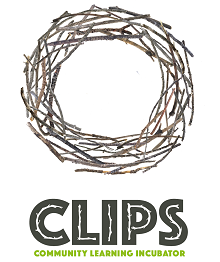PROCESS FOR CLIPS AMBASSADORS, FACILITATORS AND TRAINERS ACCREDITATION
Background
To ensure both the growth, the quality and the sustainability of the CLIPS model in Europe beyond the original core group that designed and developed the original program (CLIPS1) in years 2015/2017, a defined certification process has been developed. The multicultural and multidisciplinary nature of CLIPS requires an open and flexible approach, at the same time reflecting the need to guarantee a high level of competence among CLIPS trainers.
Accreditation
The team of CLIPS Expert trainers are in charge of the accreditation system and expert trainers. The national CLIPS teams are responsible for accreditation of CLIPS Ambassadors and trainers. All accreditation cases will happen without any paramount objections from the actors involved. It is therefore not mandatory that people meeting the official criteria for will be accepted.
The system has a natural progression and criteria that define how to qualify for each level:
1) CLIPS AMBASSADOR – can offer a public CLIPS presentation and run a shorter introduction workshop.
Will be accredited by the national CLIPS-team (if the National CLIPS-team has no CLIPS trainers/facilitators, then by the national CLIPS-team plus one of the CLIPS Expert Trainers). Criteria: the ambassador must:
- be familiar and confident with the CLIPS guide, and at least some of the methods and tools developed by the CLIPS program;
- be able to present the CLIPS website and the general concepts behind the model
(4 layers + practice, and 4 dimensions); - have attended at least one basic CLIPS training held by certified trainers;
- have good knowledge about GEN and GEN Europe, and have a personal experience/interest in community living.
Download the form, fill it in and send it to your national CLIPS contact person:
Application CLIPS Ambassador
2) CLIPS FACILITATOR AND BASIC TRAINER – can work with groups, offer CLIPS incubation/consulting assistance and run CLIPS (Ambassador level) trainings. Will be accredited by the national CLIPS-team (if the National CLIPS-team has no CLIPS Expert Trainers, then by the national CLIPS-team plus one of the CLIPS Expert Trainers). Criteria: the trainer/facilitator must have all the above, and:
- attend a CLIPS ToT held by expert trainers (or equivalent trainings);
- follow any training process defined by the national pool of CLIPS trainers/facilitators, including committing to work in teams with other trainees for at least 2 years and receive feedback by trainers and groups according to national protocols;
- have experience in working with groups of different nature and sizes over at least 3 years;
- be certified in at least 1 of the “CLIPS Sources” and has followed trainings in several of them
- (other trainings than those mentioned in the list of CLIPS sources and practical experience within them can be accepted as equivalent);
- have knowledge and experience on interactive and participatory teaching methods, and commit to apply them in CLIPS trainings;
- have personal experience with community living – or community building experience – for three consecutive years, in the recent past.
3) CLIPS EXPERT TRAINER – is a specialized trainer who train others to become CLIPS facilitators/trainers.
Accreditation to become a CLIPS expert trainer will be managed by the CLIPS Expert Trainer team.
Criteria: the CLIPS expert trainer must have all the above, and:
- have to participate in at least one CLIPS ToT (held by CLIPS trainers);
- have good knowledge on most of the CLIPS Sources and have deep personal experience with facilitation
- has worked with at least 2 community initiatives and accompanied them over a time in the incubation process;
- have a positive reference from at least three community groups worked with;
- have background on didactics and interactive training methods;
- be willing to give and receive peer feedback;
- be confident with all the CLIPS methods and tools;
- have excellent knowledge of the CLIPS methodology (guide, methods, game etc.).
Being an accredited CLIPS Expert Trainer means to take responsibility for improving and expanding the contents of CLIPS and promote its dissemination, for instance through developing and teaching ToT.
“Fast Track”
Experienced facilitators, who comply with most of the requirements stated in level 1 and 2, can be merited and their accreditation process can start at level 2 or 3, if they have participated in one national CLIPS training to widen their knowledge on the specific features of this model and its methodology. The new CLIPS trainer will have to be endorsed at an international training within the first 2 years.
As national differences in training and progression schemes might occur, any national difference from the overall European accreditation scheme will have to be explained, if a facilitator/trainer is to be mentioned on the general CLIPS website.

